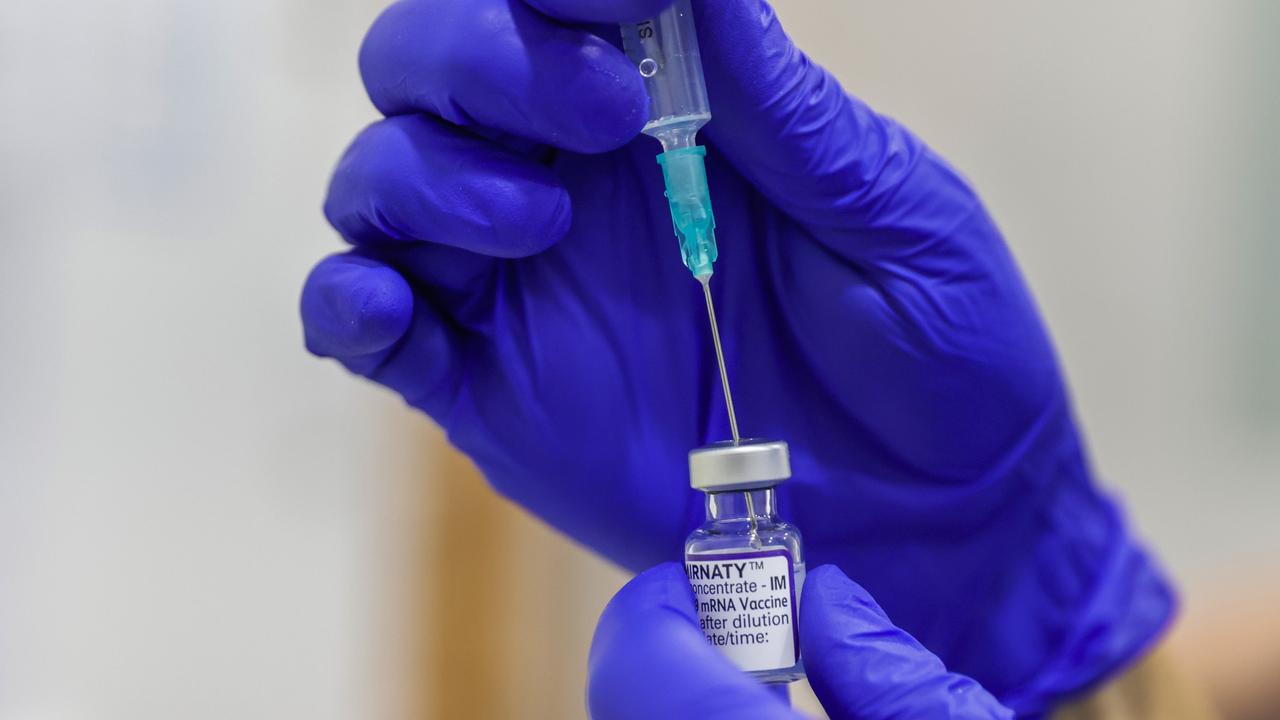Covid-19 vaccine boosters ready by end of the year
A third round of Covid vaccinations will be rolled out by Christmas, pending approval from the TGA.
NSW Coronavirus News
Don't miss out on the headlines from NSW Coronavirus News. Followed categories will be added to My News.
Booster Covid-19 vaccines will be rolled out widely in Australia by Christmas, while thousands of people most at risk of severe illness have already received a third jab.
The federal government is planning to launch a third round of vaccinations for the general population before the end of the year, pending approval from the Therapeutic Goods Administration (TGA).
In the week and a half since immunocompromised people became eligible to receive a third vaccine, it is understood several thousand have already had their booster shot.
Australia already has a significant supply of vaccines to give as boosters, as the third dose is simply either an extra Moderna or Pfizer mRNA jab.
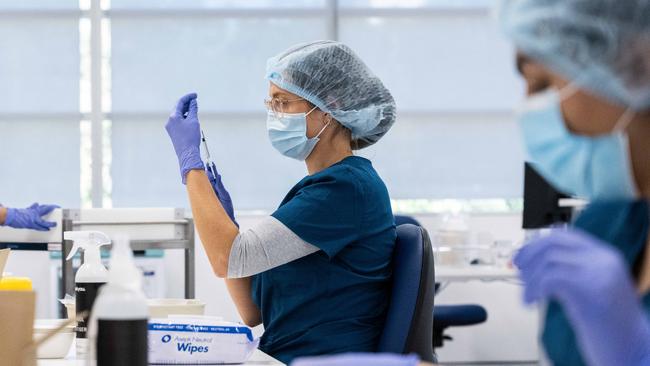
The TGA is waiting on a final application from Pfizer before it can assess the vaccine’s efficacy as a booster for the general population, with the drug company expected to nominate an eight-month gap between the second and third dose.
This would mean the majority of Australians would not need to roll up their sleeves for the extra vaccine until next year.
With more than half of all Australians getting their initial Covid-19 vaccinations at a GP, the same system will likely be used again for boosters, with the government expecting doctors would initially contact patients when due for a third shot.
The government will monitor uptake of booster vaccines in the early priority cohorts and is prepared to intervene if people aren’t booking appointments.
Those in the earlier rollout phases, such as aged care residents, will be given the booster through inreach teams visiting facilities.
Aged care residents are expected to start receiving a third booster from the second week of November pending approval from health regulators.
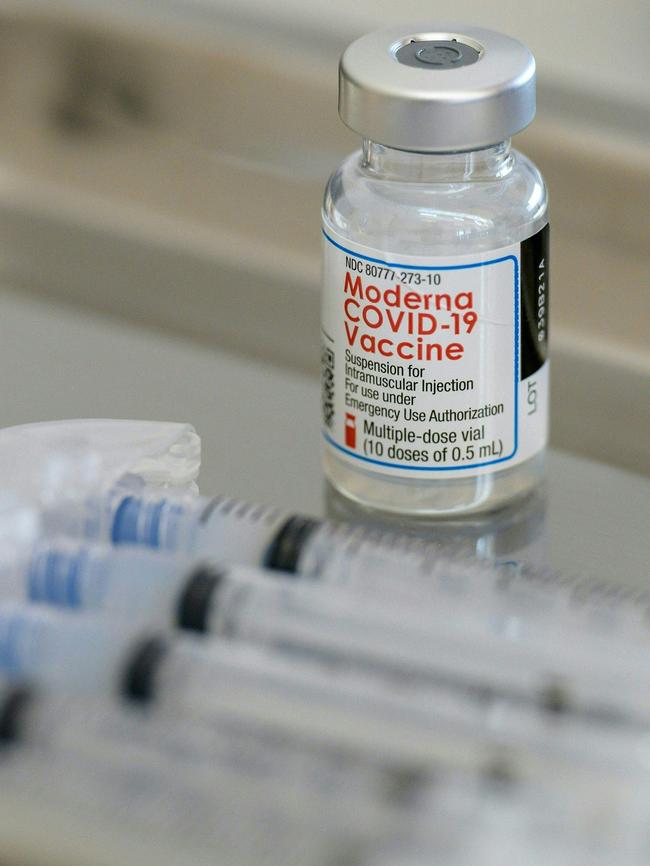
Health Minister Greg Hunt has announced the Therapeutic Goods Administration (TGA) is due to meet on Monday and will consider booster vaccines for the aged care population, before then separately considering the third jab for The general Australian population.
Mr Hunt said should the TGA approve the booster for aged care, the government intended to start the rollout of extra doses to residents from mid November.
Chief Medical Officer Professor Paul Kelly said the data from overseas where boosters are being used, particularly in Israel, showed the vaccines were “safe” and “effective” in “all age groups”.
The booster vaccine in Australia will initially be the Pfizer option, as no other companies have applied for TGA approval to take part in the booster program.
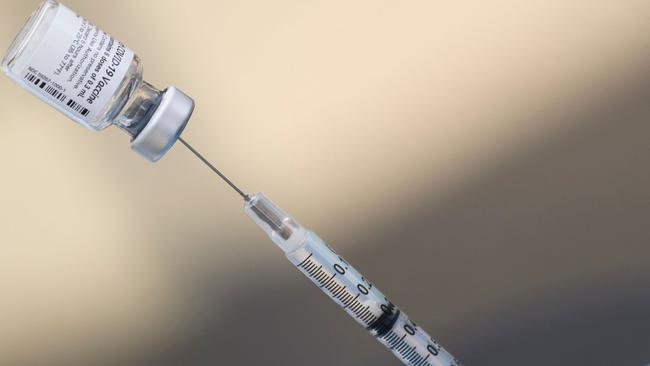
In announcing the booster vaccine program for Australia’s 500,000 immunocompromised people earlier this month, Mr Hunt said the recommended interval for this cohort was between two and six months.
“Australians who are severely immunocompromised may have a decreased immune response to a Covid-19 vaccination and be more at risk from severe Covid-19,” he said.
“If you or someone in your family are severely immunocompromised, we encourage you to reach out to your GP or specialist to discuss whether an additional dose is required.”
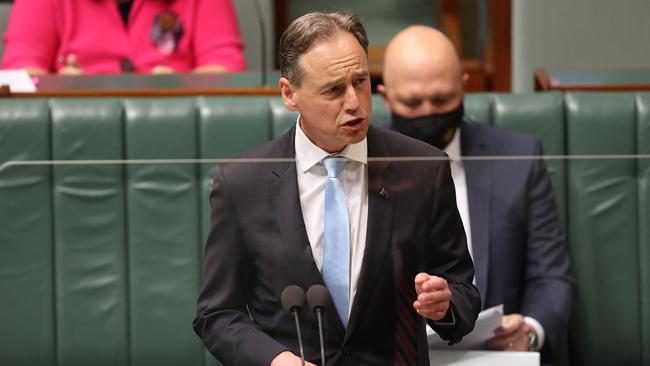
But Labor’s health spokesman Mark Butler has accused the government of not being ready for the booster program.
Mr Butler said his office had been inundated with calls from immunocompromised people who have struggled to book appointments in the past week because their GP or pharmacist was not aware boosters had begun.
“This isn’t good enough,” he said.
“Australians expect their Government to follow through on announcements.”
NSW chief health officer Dr Kerry Chant said the state was prepared to implement advice on booster Covid-19 shots imminently expected from the Australian Technical Advisory Group on Immunisation (ATAGI).
“ATAGI is currently considering the (booster) recommendations … and I understand they will be releasing that (advice) very, very shortly,” she said.
“As soon as that advice is released, we as a system – with GPs, pharmacies, and state clinics – will rapidly implement that (plan).”
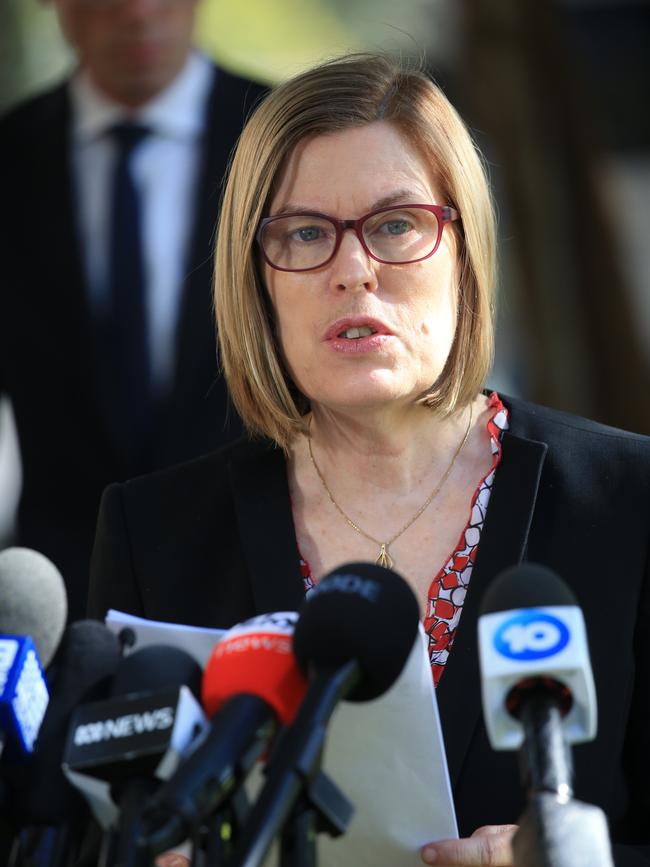
Infectious diseases expert Professor Peter Collignon said there was “no doubt” people’s antibodies protecting them from the virus would “fall with time,” but so far the data has not shown rates of serious illness, hospitalisation and death from Covid-19 had increased six-months post vaccination.
“There is a lot of evidence immunocompromised people had a poorer immune response to begin with, so there is certainly the case for them to get the third dose,” he said.
“But in the general population we have the luxury of time because most people have only just been vaccinated.”

Prof Collignon said the “next big danger” for Australia was not until winter next year, and by then there would be significantly more research from Europe and the US on the need for boosters.
“We shouldn’t rush it,” he said.
Prof Collignon said Australia needed move away from the “zero Covid mentality,” because case numbers were no longer representative of risk.
“If NSW was a country it would probably be the highest vaccinated in the world, so we have to change our focus to realise it’s not really an issue to become unwell for a few days and instead focus on deaths and hospitalisation.”
Prof Collignon said the arsenal of Covid-19 treatments Australia had acquired would also play an important role in combating the virus long term.
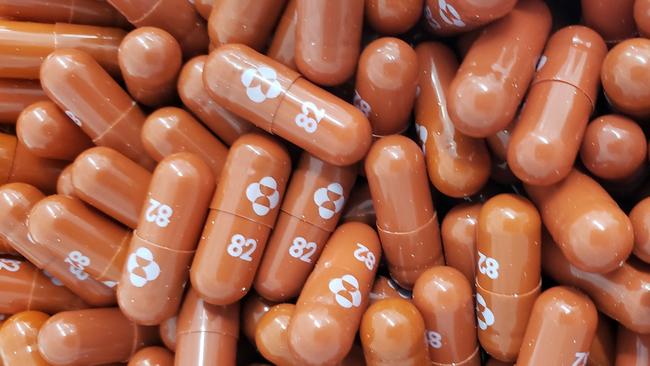
“We don’t want our hospitals to become overwhelmed, and some of the initial studies from these … treatments show they may halve your chances of having virus complications,” he said.
Australia has secured five different Covid-19 treatments so far, of which three have already been approved by the TGA for use in adults at risk of severe illness.
Remdesivir, Ronapreve and Sotrovimab are all administered intravenously by health professionals, and have each shown to either significantly reduce the likelihood of hospitalisation or cut recovery time.
The government has also purchased a combined 800,000 courses of two promising oral pill treatments for Covid-19, which are still in the trial phase but could be available in 2022 if approved by the TGA.
Originally published as Covid-19 vaccine boosters ready by end of the year





